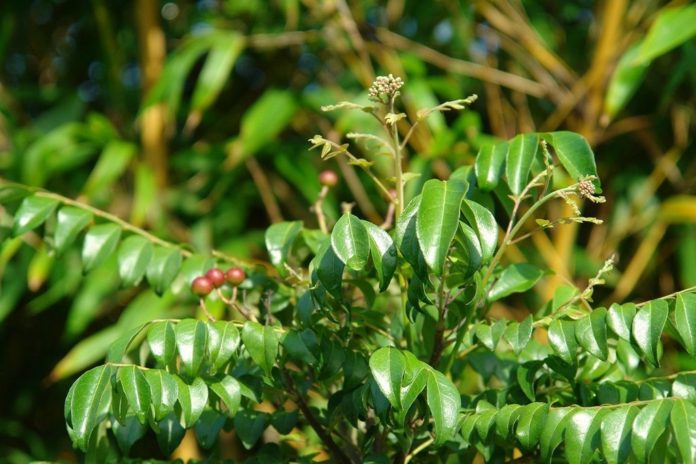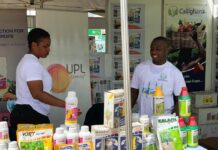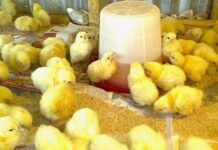Plant Protection and Regulatory Services Directorate (PPRSD) of the Ministry of Food and Agriculture in collaboration with the Europe-Africa-Caribbean-Pacific Liaison Committee (COLEACP) has organized a workshop to establish and maintain Pest Free Areas (PFAs) for the production and exportation of curry leaves at Accra, Ghana.
The President of VEPEAG, Mr. Felix Kamassah said the association supports the establishment and maintenance of pest-free areas for the production and export of curry leaves in Ghana. The President said the management of harmful organisms on vegetables and fruits for export is a collaborative effort between exporters and the Plant Protection and Regulatory Services Directorate (PPRSD) of the Ministry of Food and Agriculture. Mr. Felix Kamassah said that “We must all agree on a plan of action on pest management to safeguard the quality of crops from losses by pests and diseases”.
In a welcoming address read on behalf of the Director PPRSD, Mr. Ebenezer Aboagye, Head of Crop Pest and Disease Management Division explained that establishing and maintaining pest free areas for the production and export of curry leaves to European markets is a key to boost the exports of the product. “In line with the regulatory changes affecting exports to the EU, Directive 2019/523 requires that export to the EU must conform to options. That is why this discussion is very important and we need to choose the best option and its management if the vector of citrus greening disease is present in Ghana” he added.
Mr. Aboagye indicated that the citrus greening disease which is transmitted by Asian citrus psyllid Diaphorina citri and the African citrus psyllid Trioza erytreae is widely distributed in the sub-tropics and tropics. “Since the 1990s, more than 60 million citrus trees have been destroyed worldwide. Widespread losses of citrus trees have also been reported in Brazil, Indonesia, Philippines, India, Nepal, and Saudi Arabia. The disease is also threatening citrus production in Florida and California in the United States since its introduction in 2005 and 2012 respectively” he added.
Mr. Daniel Kwagbenu, the facilitator of the workshop explained that the objective of the gathering was to discuss the importance of Establishing and Maintaining Pest Free Areas for the production and export of Curry Leaves. “Establishment and use of a PFA by PPRSD provide for the export of plants and plant products from the country in which the area is situated (exporting country) to another country (importing country) without the need for the application of additional phytosanitary measures when certain requirements are met,” he said.
The Facilitator said the EU plant health regulation ((EU) 2016/2031) that came into force on December 14, 2019, has brought rigorous new rules to prevent the introduction and spread of pests and diseases in the EU Member States.
“Countries exporting fruit and vegetables to the EU market must take action to ensure that all consignments are in compliance. If pests are found on arrival in Europe, especially regulated pests, the EU authorities are likely to take action that has serious consequences on the export sectors”.
Mr. Kwagbenu indicated that in 2015 the UK placed a ban on the exports of fresh curry leaves (Murraya koenigii) from Ghana. However, the imports of dried and frozen leaves were still permitted. “It’s possible for exports to resume if producer countries outside the EU are officially recognized as free from citrus greening disease”.
Within the framework of EU’s Fit for Market-Sanitary and Phytosanitary Measures (FFM-SPS) program, this COLEACP sponsored workshop; (a) created awareness and facilitated understanding of the principal requirements for a pest-free programme as well as, (b) familiarity with and implications of the various options, namely pest-free areas (PFAs), pest-free places of production (PFPP), pest-free production sites (PFPS) and areas of low pest prevalence ALPP).
COLEACP (The Europe-Africa-Caribbean-Pacific Liaison Committee), a not-for-profit association, facilitates the flow of trade within the Africa-Caribbean-Pacific (ACP) region, and between ACP countries and the EU. For several years, COLEACP has supported the development and compliance initiatives of companies/associations in Ghana and other ACP countries active in the production, transformation, and export of fresh fruits and vegetables to European markets (www.coleacp.org/en).
The workshop brought together officials from the Vegetable Producers and Exporters Association of Ghana (VEPEAG), Ministry of Trade and Industries, Ghana Export Promotion Authority, and the Directorate of Crop Services of the Ministry of Food and Agriculture. Other stakeholders also participated online via Zoom.
Written by: Nana Yaw Reuben.








